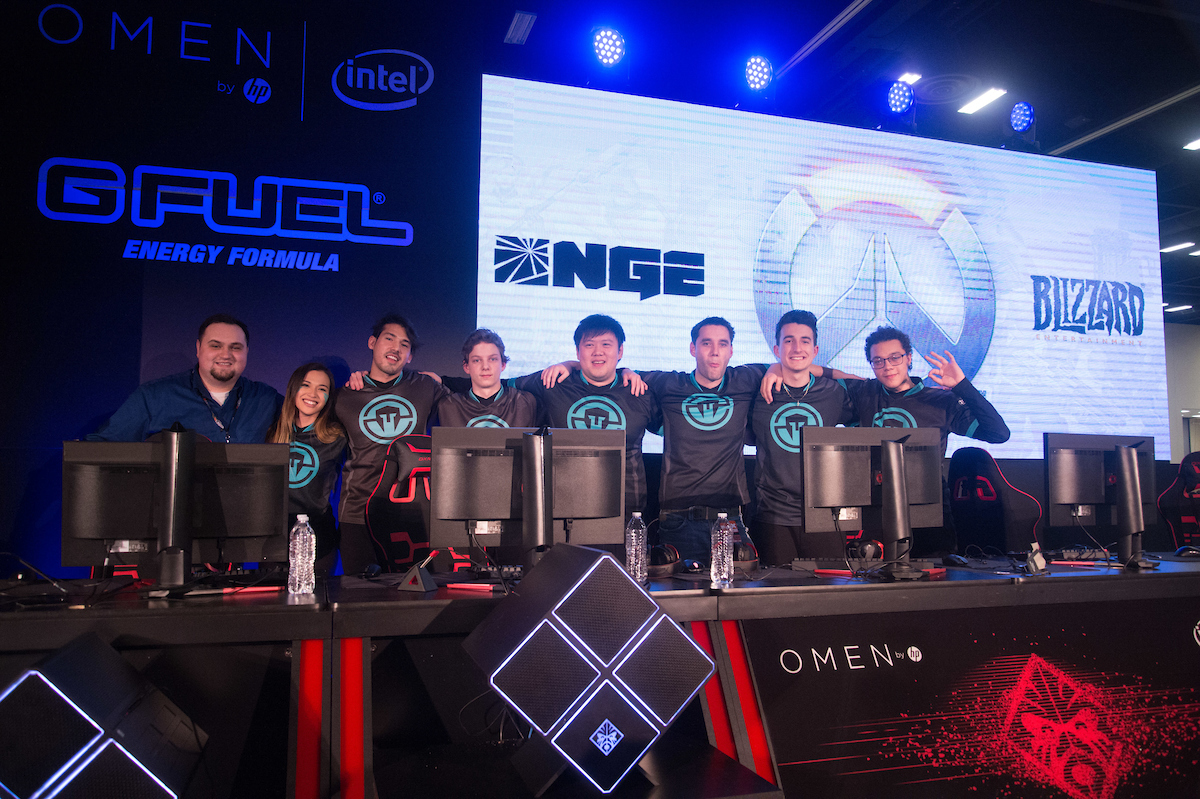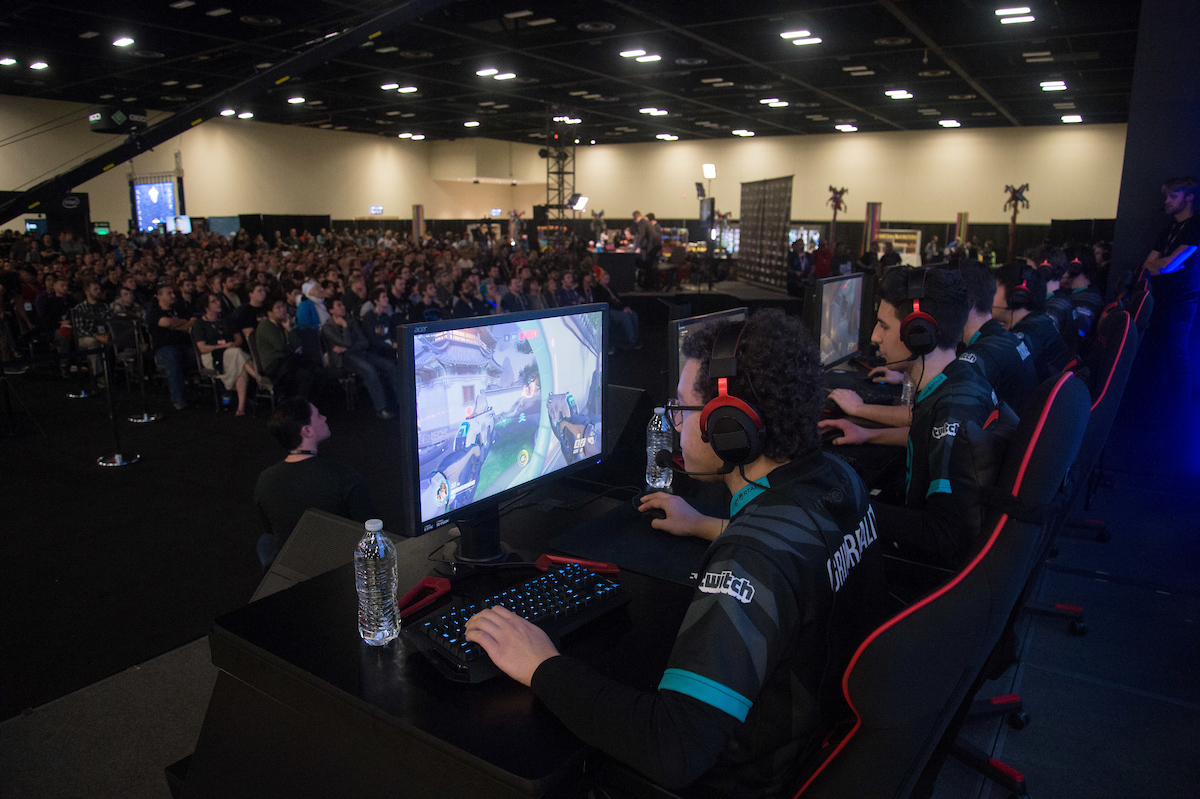Immortals CEO Noah Whinston on the state of Overwatch esports
On the highs and lows of Blizzard's nascent pro shooter.

The last quarter of 2016 saw a whirlwind of professional Overwatch tournaments come and go. ESL, Overwatch Open, Apex Season 1, DreamHack Winter, MLG Las Vegas and other competitions put Overwatch on the map in the esports world. Of the major tournaments to be held in North America, the last was the NGE Winter Premiere, an event that saw its conclusion streamed live from PAX South in late January of this year. Immortals emerged victorious over Ghost Gaming in the Grand Finals, and continue to compete at the highest level to this day. I spoke with Noah Whinston, CEO of Immortals about the state of professional Overwatch as well as his team’s development.
To start with, we have to go back a month or so to ominous times ruled by fear and speculation. Denial Esports parted ways with their Overwatch roster. Complexity Gaming left the scene. Splyce abandoned ship. People suggested that rumored price points and structural complications of Overwatch League were responsible for teams wanting to leave. Some organizations said there was a lack of exposure, and that it didn’t make sense for them to have an Overwatch roster at this point in time. Whinston provides some insights:
“Look, right now, esports organizations—our core business model is built around exposure" Whinston says. "If you play in competitions that are watched by more people, the real estate on your jersey becomes more valuable, your players become more valuable because they have more fans, and right now in competitive Overwatch, there’s not a lot of exposure. You have Overwatch Monthly Melee and tournaments like RivalCade every once in awhile, but those are mostly online-only tournaments, and the production value is fine, but it’s nothing that special. So ultimately, if Overwatch stayed at steady state and it was exactly at this scale and this quality forever, then yeah, maybe it would be a game we’re not interested in. But I think teams that are dropping their Overwatch teams right now are not really thinking about the long term of Overwatch League. Because obviously that’s going to be a big game-changer for the scene and that’s true whether we’re a part of it or not.”
All we know with any certainty is that there aren’t many tournaments out there right now. Overwatch Contenders starts this weekend, Overwatch League begins sometime after that, and that Blizzard has plans for Overwatch and MLG. Whether or not it will be enough remains to be seen, but, as Whinston says, all of these other rumors are “rampant speculation”. As fans and consumers, we’d do well to just let things unfold instead of saying baseless things like “the scene is dead”. The implications that Overwatch League has for the esports industry are huge, and the game is still very young and developing.

To that extent, Overwatch has also had its value as an esports title questioned by the community. Some feel that the game is too easy to hold the interest of its spectators, while others say that it’s far too complicated as a competitive title.
“I think it’s a funny divide, because you have some people saying it’s too easy and simple a game, and some people think it’s too difficult and complicated a game, and I think that proves that the reality is somewhere in the middle" Whinston says. "From my perspective, Overwatch is a really fun game. It being a shorter game mode than League of Legends or Counter Strike isn’t inherently bad, because it has a ton of replay value."
The skill they exhibit under pressure is unparalleled
"People are playing this game consistently and it has a ton of consistent players" Whinston says. "That’s really valuable and shows that there’s a demand and desire to consume more content around the game. And I think especially at the pro level, a game would be too easy if you can’t distinguish between the top tier pros and the mid tier pros. The game would be too easy if there wasn’t a big jump in skill between a casual player and a professional player, but that’s really not the case. The top pros are significantly better than the mid tier pros, and the mid tier pros are significantly better than the amateurs. So there clearly isn’t an issue of this game being too easy.”
The biggest gaming news, reviews and hardware deals
Keep up to date with the most important stories and the best deals, as picked by the PC Gamer team.
GrimReality and Agilities are two of the best players in Overwatch today, and if you happen to be among the people saying that Overwatch is too easy, go ahead and take a look at some of their replays or montages. The skill they exhibit under pressure is unparalleled. What’s even more impressive is that they play two of the most difficult characters to master in McCree and Genji. Now take into consideration that the Overwatch roster is constantly growing, and that the meta shifts with the wind. Overwatch is a very demanding game, and it will continue to get more challenging as characters and maps are added. Like other, proven esports titles, Overwatch is easy for the casual player to be of average skill, but difficult for most to reach the top echelons of play.
Of course, being good enough to get on a professional roster is another thing altogether. Not only do your skills need to be up to par, but you, as a person, need to fit a team’s vision. Do we want to build to win now, or develop over time? How do we balance personalities and team goals in the age of social media and streaming? These are just a couple of questions that owners need to ask themselves when putting a team together. For Immortals, they first did some data analysis to see which players were strongest or most underrated, according to Whinston. "Pretty core to what we were trying to do is we wanted to go for the players that weren’t just the best right now, but would continue to be the best for a long time to come.”
Indeed, the Immortals Overwatch squad is very young compared to Rogue, for example. “So what we found was Sodipop, which was a team that had some older players such as Hyped and Nomy, but it also had GrimReality and Agilities—I think Agilities was 16 at the time we picked him up and Grim was 17. We saw players that weren’t just incredibly talented right now, but were able to stay on top of the game going forward into the future, and that was especially what we were looking for. We weren’t looking for a team that would require tons and tons of rosters swaps to stay competitively viable.” Whinston says that the team is socially close outside of competition, which is sometimes hard to find in esports.
Though some endemic teams may view the current lack of exposure as a hurdle, there is still a lot of growth and perseverance coming out of professional and amateur Overwatch
As for Whinston himself, the young CEO chose to start Immortals in September of 2015 instead of continuing with his final year of university. His first introduction to esports was the season 3 World Championship for League of Legends, and after seeing how the business and teams operated, he set out to “prove that it could be done better.”
Overwatch is still the new kid on the block when it comes to esports, and Blizzard has very ambitious plans for its award-winning FPS that has generated $1 billion in less than a year. Though there has been a lull in the action during this transitional phase, social media has been erupting with posts from individuals trying to field a team for Contenders this weekend. Furthermore, the Splyce roster was picked up by their former owners, Kungarna, Evil Geniuses put a team together in late April and the ex-Denial roster has flown solo under the Yikes! tag. Though some endemic teams may view the current lack of exposure as a hurdle, there is still a lot of growth and perseverance coming out of professional and amateur Overwatch. The ball is in Blizzard’s court.

